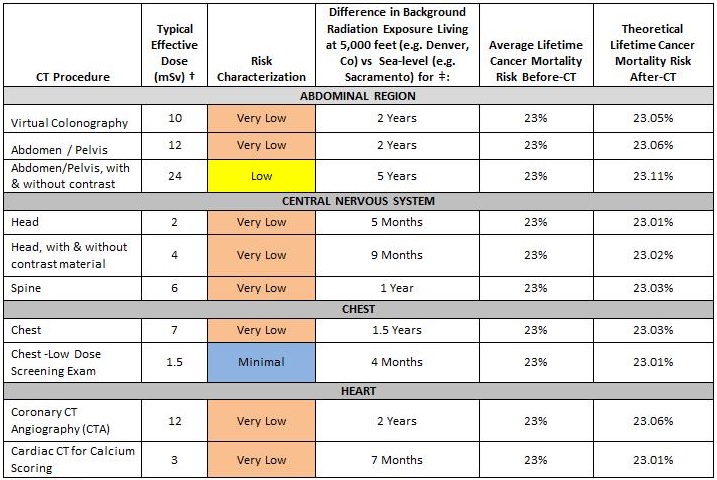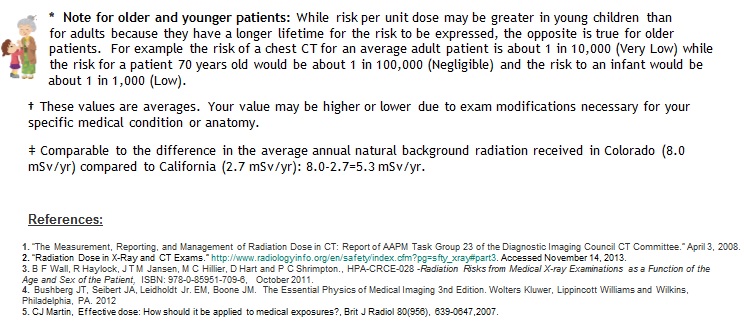Please be advised
PREGNANCY: Please notify the Radiologist if you are pregnant, or think you may be pregnant. Alternatives can be discussed with your doctor.
ALLERGIES: Notify the Radiologist, Nurse, or Technologist if you are allergic or sensitive to medication, contrast dye, iodine, or latex.
Your doctor will use the results to better diagnose and manage your condition. CT may be used to check for many diseases or causes of pain, such as a blood clot in the lungs, appendicitis or tissue swelling. The ability to accurately diagnose and treat these conditions in a timely manner will, in many cases, improve the effectiveness of your care.
All of us are exposed to ionizing radiation every day, mainly from naturally occurring radioactive material in the air, water and ground as well as radiation from our sun and deep space. The amount of radiation received during a typical body CT scan is equivalent to about 3 years of background radiation. The risk of getting a negative effect from this amount of radiation is thought to be approximately 1 in 2000, a relatively low risk considering all of us have a 1 in 5 lifetime risk of dying from cancer. CT uses x-rays (a form of ionizing radiation) which may pose a very small risk of adverse effect many years after the scan.
Within the UC Davis Health, our CT scanners feature the latest technology and imaging protocols, allowing us to use the lowest possible amount of radiation needed for each CT procedure.
In an emergency or serious situation, the benefits of CT clearly outweigh the risks and CT is usually the best option. However, in other situations you may wish to discuss with your referring doctor the pros and cons of alternatives to CT such as ultrasound or MRI which do not use ionizing radiation.
It is very important that you tell the Radiology staff if there is even the slightest possibility that you may be pregnant, since at higher doses x-rays can be harmful to the developing baby. Alternatives may include postponing the exam, using ultrasound or MRI, or modifying the CT exam to reduce the exposure to the fetus. You can discuss these options with either your referring doctor or with the staff of the Radiology Department.
A normal CT provides valuable information and does not mean the test was unnecessary. It is important for your doctor to know what you do not have, as well as what you do have. In some cases the CT exam can provide the information your doctor needs thus avoiding alternative procedures, such as surgery, that have higher risks.



